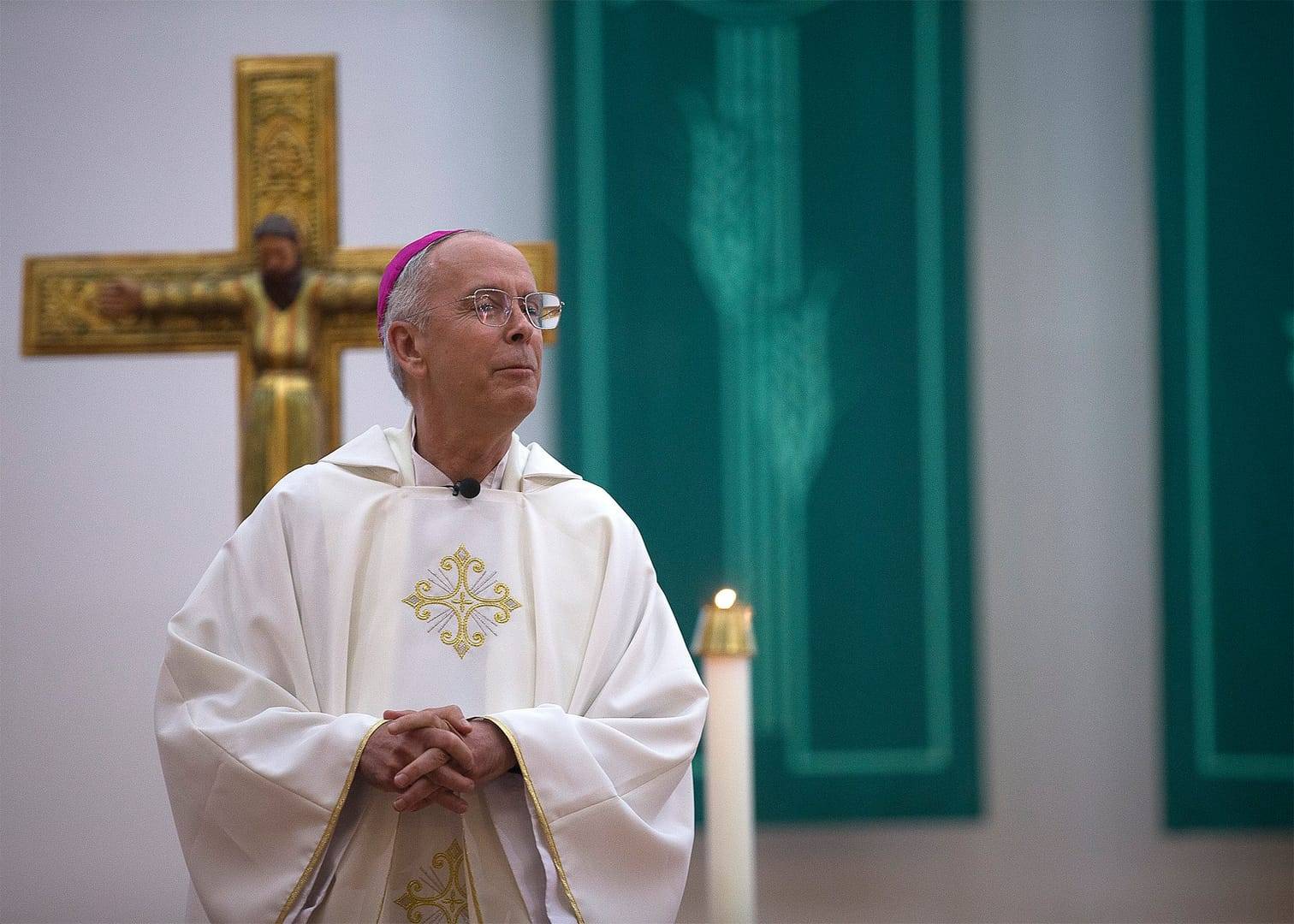TRENTON, New Jersey — A traffic accident between two men of different races and religions ends in a hateful confrontation with racial slurs and epithets buffeted between them.
A racially motivated assault on a local freelance photographer leaves him in critical condition. White supremacist fliers targeting Jews are left on car windshields in a parking lot and distributed on school campuses. Swastikas are painted on Jewish homes, businesses and places of worship.
These are just some of the episodes — many of them violent, stemming from hatred, racism, prejudice and anti-Semitism — growing in number across New Jersey.
“It’s evident in all that we see, hear and read,” said Ocean County Prosecutor Joseph Coronato. “It causes one to question, ‘What is happening?’ Our values are disappearing in front of us. We need to stand up and address this. We need to reclaim our humanity.”
In response, law enforcement officials and religious leaders launched a campaign on the Memorial Day weekend. With the theme “‘Love Thy Neighbor: A Pulpit Proclamation,” the May 25-27 effort was sponsored by the Office of the Ocean County Prosecutor and taking place in houses of worship across Ocean and Monmouth Counties.
Trenton Bishop David M. O’Connell was among the religious leaders asking their congregations to stand up against racism, hatred and anti-Semitism, and to pray and work for peace in their own neighborhoods and on social media.
Father John Bambrick, pastor of St. Aloysius Parish in Jackson, explained that the campaign developed out of a recent meeting called under the auspices of New Jersey’s attorney general, facilitated by the U.S. Department of Justice and hosted by the Ocean County prosecutor’s office.
Participants included a number of police chiefs and chaplains, along with religious leaders from more than a dozen denominations.
As a member of the Office of the Ocean County Prosecutor’s Human Relations Commission, Bambrick was part of what he described as a “proactive initiative” to confront the growing number of hate crimes related to racism, anti-Semitism and other affronts to human dignity.
“At a time when division and polarization and prejudice seem to mark our society anew, we need to look deeply into our hearts again to renew our commitment to the freedoms that are ours to own and to share together as neighbors,” O’Connell said in a message for the campaign.
“Hatred and discrimination based on race or religion, national origin or culture or whatever distinguishes us from one another throughout this great land,” he said, “are the antithesis of our national heritage and our national motto ‘E pluribus unum … out of many, one.'”
“I was heartened by the bishop taking this important message and making it available to his flock,” Coronato, a member of St. Joseph Parish in Toms River, told The Monitor, newspaper of the Trenton Diocese.
The prosecutor spoke of the power of the religious communities to do great things and to help others “rise to a level of humanity, dignity and respect for others.”
The campaign created a public service announcement for release to the broader community. Developed by the Coronato’s office, it includes dozens of religious leaders, among them Bambrick and Father Scott Shaffer, who is pastor of St. Joseph in Toms River.
“It makes complete sense to encourage people to love this neighbor, though it seems like it should be automatic for people of faith,” said Shaffer.
“Jesus said, ‘Love thy neighbor.’ We should do exactly what Jesus says and not rationalize our own pettiness. We don’t live in a homogenized society … (but) we do live in a country that promises freedom for all,” he added.
“Peace is our commission,” said Bambrick. Catholic social teaching calls the faithful to “promote and bring about the common good for society, not just the Catholic good … we can honor people’s diversity and still keep our beliefs and way of life,” he said.
Rabbi Moshe Gourarie, of the Chabad Jewish Center of Toms River, said even if only two or three people in a community hear the campaign’s message and make a change, it can be the start of a ripple effect.
“You never know how far the ripple will go,” he added.
– – –
Morrell is a correspondent for The Monitor, newspaper of the Diocese of Trenton.















